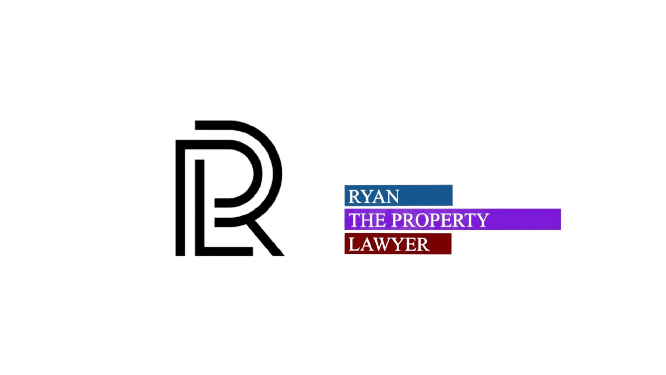Land use and zoning are essential components of the real estate sector. They control how land may be used, developed, and sold, and are crucial for guaranteeing the correct use of land and maintaining a balance between economic growth and environmental preservation. In this article, I will examine the significance of zoning and land use in real estate, as well as its effects on property owners, developers, and communities.
What are Land Use and Zoning?
Table Of Contents:
- The Significance of Land Use and Zoning in Real Estate
- Types of Land Use and Zoning Regulations
- Zoning and Land Use Regulation Advantages
- Zoning and Land Use Regulations Difficulties
- Discussion
Zoning and land use are regulatory instruments that control the usage and development of land. Zoning laws split land into distinct zones or districts and specify the permitted activities in each zone. The regulations specify the permitted uses, building height, density, and setbacks, as well as the design and architectural requirements for new construction.
In contrast, land use is a broader phrase that comprises zoning restrictions as well as other regulatory instruments, such as comprehensive plans, construction codes, and environmental regulations. The objective of land use policies is to encourage the efficient use of land and to guarantee that land is used in a manner that serves the public interest. There are tons of legal difficulties here!
The Significance of Land Use and Zoning in Real Estate
Zoning and land use are vital components of real estate, and they play a significant role in defining communities and fostering economic growth. The following are some of the most important reasons why zoning and land use are essential in the real estate industry:
1. Facilitating Economic Growth
The significance of zoning and land use rules in encouraging economic growth is crucial. By designating regions for certain purposes, such as commercial, industrial, or residential, zoning restrictions facilitate the growth and development of businesses. This contributes to economic expansion and employment creation in the neighborhood.
2. Defending Property Values
The purpose of zoning and land use rules is to safeguard property values and guarantee that properties are utilized in a way suitable with the surrounding community. This ensures that the town remains an attractive location to live and work by maintaining a balance between economic development and environmental conservation.
3. Promoting Effective Land Use
The purpose of zoning and land use rules is to encourage the effective use of land. Zoning restrictions assist protect natural resources and encourage sustainable development by restricting development in particular places, such as flood zones or regions with environmental limits.
Types of Land Use and Zoning Regulations
Several zoning and land use restrictions apply to various types of property and development. Among the most prevalent forms of zoning restrictions are:
- Residential Zoning: These restrictions control the use of the property for residential purposes and are intended to maintain the safety, health, and livability of residential neighborhoods.
- These restrictions control the use of the property for commercial uses, including retail businesses, restaurants, and offices. They are intended to foster economic growth and employment creation in the neighborhood.
- These regulations restrict the use of land for industrial uses, including manufacturing and distribution facilities. They are intended to foster economic growth and employment creation in the neighborhood.
Zoning and Land Use Regulation Advantages
Zoning and land use restrictions give property owners, developers, and communities with several advantages. Among the primary advantages are:
1. Ensuring compatibility with adjacent land uses
Zoning and land use restrictions guarantee that properties are utilized in a manner that is harmonious with the neighborhood. This ensures that the town remains an attractive location to live and work by maintaining a balance between economic development and environmental conservation.
2. Sustainable Development Promotion
The purpose of zoning and land use rules is to encourage sustainable development by encouraging the effective use of land, safeguarding natural resources, and increasing energy efficiency. Zoning and land use rules contribute to a healthier and more livable community environment by fostering sustainable development.
3. Giving Clarity and Assurance
Zoning and land use restrictions give property owners and developers with clarity and assurance. They give a clear framework for land use and development, making it easier for property owners and developers to comprehend what is and is not permitted. This reduces ambiguity and risk, making it easier for developers to obtain finance and move projects ahead.
Zoning and Land Use Regulations Difficulties
While zoning and land use restrictions give a number of advantages, they also provide a number of obstacles. Some of the primary obstacles include:
1. Complexity
Zoning and land use restrictions can be difficult to navigate due of their complexity. This might make it difficult for property owners and developers to comprehend what is and is not permitted.
2. Inflexibility
Zoning and land use restrictions can be rigid and may not always reflect the community’s evolving demands. This may hinder the community’s capacity to recruit new firms and sectors and make it difficult for developers to adjust to changing market conditions.
3. Inconsistency
It is possible for zoning and land use restrictions to be inconsistent, particularly when various regulations apply to different sections of the community. This can make it challenging for property owners and developers to comprehend how to comply with the requirements, resulting in confusion and ambiguity.
Discussion
Land use and zoning are essential components of the real estate sector. They regulate the use of land and its development, and play a vital role in shaping communities and fostering economic growth. The benefits of zoning and land use restrictions include economic development promotion, protection of property values, and promotion of sustainable development. Yet, they also provide a number of obstacles, including complexity, rigidity, and inconsistency. Property owners, developers, and communities must recognize the significance of zoning and land use and collaborate to establish a regulatory framework that supports the public interest and economic development.
Author Profile

Latest Blog
 Uncategorised22 December 2023What Constitutes a Legal Partnership in Ontario?
Uncategorised22 December 2023What Constitutes a Legal Partnership in Ontario? Uncategorised22 December 2023Characteristics of a Corporation in Ontario
Uncategorised22 December 2023Characteristics of a Corporation in Ontario Uncategorised22 December 2023Intentions Matter When Co-Owning Property
Uncategorised22 December 2023Intentions Matter When Co-Owning Property Uncategorised22 December 2023Consequences of Operating an Ontario Partnership
Uncategorised22 December 2023Consequences of Operating an Ontario Partnership




